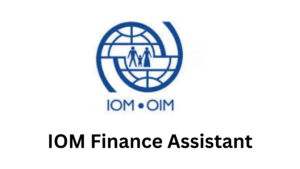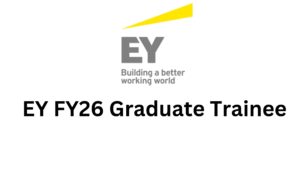
Table of Contents
Transitioning or making a career shift to a new industry or job role can be both exciting and challenging. Whether you’re seeking a change to align with your passions, explore better opportunities, or adapt to market trends, transitioning successfully requires preparation and strategy. Here are eight actionable tips to help you navigate the process and land your next role confidently.
1. Assess Your Transferable Skills
Transferable skills are abilities that can be applied across different roles or industries. These include leadership, communication, problem-solving, and project management. Identifying your transferable skills will help you highlight how your experience aligns with the new role or industry.
How to Start:
- List your key skills and match them to the requirements of your target role.
- Use real-world examples to demonstrate how you’ve applied these skills in your current or past roles.
- Emphasize these skills in your resume, cover letter, and interviews.
2. Research Your Target Industry or Role
Understanding the nuances of the new industry or role is crucial for making a successful transition. Familiarize yourself with its challenges, trends, and demands to demonstrate your commitment and readiness to adapt.
How to Start:
💬 Get Paid in Dollars Just by Chatting With Lonely People
Imagine earning daily dollar income from anywhere in the world — no degree, no experience, no interviews — just your phone or laptop.
People are getting paid simply to chat, listen, and keep others company online. This short ebook reveals:
- ✔ Legit platforms that pay in USD
- ✔ How Africans can register & withdraw successfully
- ✔ What to say to keep conversations paid
- ✔ How beginners start with zero experience
Instant download • Works worldwide • Beginner-friendly
- Read industry reports, blogs, or news to stay informed.
- Follow industry leaders or influencers on social media.
- Join online forums or attend networking events specific to your desired field.
3. Tailor Your Resume and Cover Letter
A generic resume won’t effectively showcase your potential for a new role or industry. Tailor your application materials to highlight the skills, experiences, and accomplishments most relevant to your target position.
How to Start:
- Use the job description as a guide to emphasize relevant qualifications.
- Focus on achievements that demonstrate results transferable to the new role.
- Avoid jargon specific to your current industry unless it applies to the new one.
4. Build Your Network
Networking can open doors and provide insights into transitioning successfully. Connecting with professionals in your target industry or role can help you learn more about expectations, culture, and opportunities.
How to Start:
- Reach out to colleagues, friends, or alumni who work in the industry or role you’re targeting.
- Use LinkedIn to connect with professionals and participate in industry-specific groups.
- Attend job fairs, workshops, or industry events to meet potential mentors or hiring managers.
5. Consider Upskilling or Gaining Certifications
Sometimes transitioning to a new industry or role requires additional qualifications. Gaining relevant certifications or training can boost your credibility and increase your chances of landing a role in a different field.
How to Start:
- Identify gaps in your skills by reviewing job descriptions for your target role.
- Enroll in online courses, workshops, or certificate programs.
- Highlight new qualifications in your resume and LinkedIn profile.
6. Leverage Your Current Experience
Your current experience, even if unrelated, can often be reframed to show relevance to your target industry or role. For instance, experience in customer service translates well to sales or client relations.
How to Start:
- Identify commonalities between your past roles and the new field.
- Share stories in interviews that showcase your adaptability and success in diverse situations.
- Use accomplishments to demonstrate how your expertise adds value to the new role.
7. Be Open to Lateral Moves
Sometimes, you may need to take a lateral role or entry-level position to gain experience in the new industry. While this may seem like a step back, it can be a stepping stone to future growth and success.
How to Start:
- Look for roles that provide opportunities to learn and grow within the industry.
- Focus on gaining relevant experience rather than immediate titles or pay increases.
- Seek mentorship or guidance from colleagues who have successfully transitioned.
8. Prepare for a Strong Interview Performance
When transitioning between industries or roles, you need to convince potential employers of your ability to adapt and thrive. Prepare thoroughly to articulate why you’re making the change and how your unique skills can benefit their organization.
How to Start:
- Practice answering questions about why you’re transitioning and how your skills apply.
- Use the STAR method (Situation, Task, Action, Result) to frame your answers.
- Research the company to align your answers with its goals and culture.
Final Thoughts
Transitioning between industries or job roles is a bold and rewarding move when done thoughtfully. By assessing your transferable skills, tailoring your application, networking strategically, and being open to learning, you can overcome the challenges of change and successfully navigate your way to a fulfilling new career path. Take these tips to heart and embrace the journey—your next big opportunity awaits!
For more details on this, read this article from PushFar
See also:
Tokyo University Amgen Scholars Program 2025: Apply Now!
The Letten Prize 2025 for Researchers: Apply Now!
World Trade Organization Internship Program 2025
Apply for the $5,000 Pathways Access Scholarship at Swinburne University 2025
🔥 Want to Make Money Online the Right Way?
Discover how smart people are quietly earning with AI, Email Marketing, CPA, LinkedIn, Online Teaching & Content Creation.
This is not theory — it’s a step-by-step system.
👉 Get the Ebook Now










